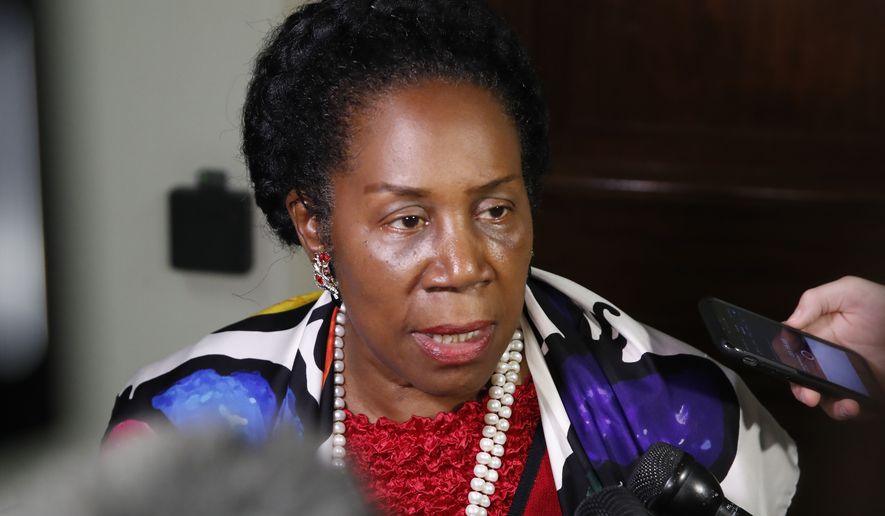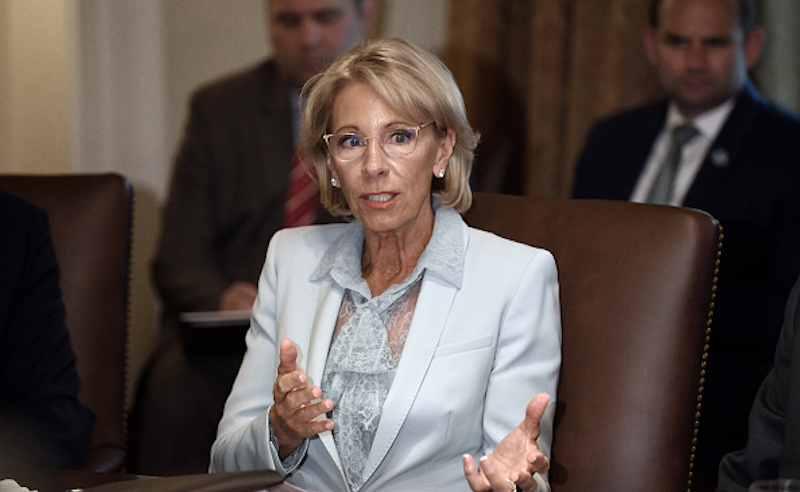 Judges question ‘practical efficacy’ of fair hearing when single official does everythingThe era of serious punishments based on a single official’s investigation is over at the University of Southern California.
Judges question ‘practical efficacy’ of fair hearing when single official does everythingThe era of serious punishments based on a single official’s investigation is over at the University of Southern California.
For the second time in less than a month, a California appeals court ruled that the private university denied a student accused of rape a fair hearing, and that the same Title IX official conducted a shoddy investigation.
The three-judge panel ordered a lower court to remove USC’s findings against “John Doe” from his record, and awarded him his costs on appeal. The university will also have to create procedures to allow accused students to cross-examine both their accusers and witnesses in some form.
This went even further than the previous appeals panel in the December ruling against USC, which explicitly declined to rule whether accused students have a right to cross-examine anyone beyond accusers.
“When credibility of witnesses is essential to a finding of sexual misconduct, the stakes at issue in the adjudication are high, the interests are significant, and the accused’s opportunity to confront adverse witnesses in the face of competing narratives is key,” said the opinion, written by Justice Thomas Willhite.
Challenging the December appeals panel even further, Willhite questioned whether the right to a fair hearing has “any practical efficacy” when a single official acts in the “overlapping and conflicting capacities” of prosecutor and tribunal.
“Under such circumstances, the performance of this key function is simply too important to entrust to the Title IX investigator in USC’s procedure,” Willhite wrote. His opinion was joined by Justice Audrey Collins and Orange County Superior Court Judge Kim Garlin Dunning, sitting by designation.
“The decision against USC appears to be consistent with the new Title IX guidelines” proposed by the Department of Education last fall, which are open to public comment through January, Doe’s lawyer Mark Hathaway wrote in an email.
‘The courts are making substantive changes,’ but USC did everything right
Both rulings fault the choices made by Title IX investigator Kegan Allee, particularly her failure to interview relevant witnesses and pursue exculpatory evidence.
USC staff identified in the past year’s rulings against the university appear to have not been sanctioned for their failures as documented by judges.
Allee is now listed as assistant director of the Title IX office. Two officials caught calling an accused student “motherfucker” – Gretchen Dahlinger Means and Patrick Noonan – still have their titles.
USC declined to answer College Fix questions about how it’s specifically changing procedures in response to the rulings, and on what timeline; when it promoted Allee (in video below), whether she’s still handling investigations, and how the rulings may affect her employment and personnel file; and whether Means and Noonan have experienced sanctions.
MORE: Huge judgment against USC after calling accused student ‘motherfucker’
A spokesperson provided a statement Saturday that says the investigation at issue in Friday’s ruling, which started in fall 2014, “was conducted in compliance with its student conduct policies and with state and federal laws in place at the time of the investigation.”
USC emphasized that “no case in California required a private university to conduct a live hearing” when the lawsuit was brought, “or to permit the responding student to confront and cross examine either the complainant or witnesses”:
The courts are making substantive changes to the requirements for Title IX investigations. USC will keep abreast of these evolving judicial interpretations and requirements, and most importantly, remains committed to preventing all forms of misconduct on our campuses, to providing outstanding care to all students, and to ensuring we have policies and procedures that prioritize respect for our students and our entire university community.
Removal of sex-offender designation will help him ‘to some degree’
Though the accused student is identified pseudonymously in Friday’s ruling, he has been previously identified as former USC football player Bryce Dixon.
USC tried to head off Dixon’s lawsuit from the start, arguing he wasn’t eligible to return to USC. It expelled him in 2015 for “nonconsensual sex acts” with the accuser, “Jane Roe,” but the following year Dixon was sentenced to six years in prison for a string of violent robberies, according to the Los Angeles Times.
The university expelled him again after his conviction for “independent violations” of the student conduct code. It maintains that the lawsuit is moot because of this second unrelated expulsion.
Neither the trial judge nor appellate judges bought the university’s argument. USC has branded Dixon a sex offender, which will have “an immediate and lasting impact” on his life, from personal relationships to educational and employment opportunities, Friday’s ruling said.
Removing his sexual-misconduct expulsion from his record would make it easier for Dixon to transfer and restore his reputation “at least to some degree” for the public, it said.
A history of hooking up with football players – and being reprimanded
As with December’s ruling against USC, this Title IX proceeding involved alleged bruises on the accuser but no physical evidence.
Dixon was a freshman on a football scholarship when he had sex with Roe, a senior and student athletic trainer, just after midnight on Oct. 24, 2014.
Trainers had been warned not to “hook up” with athletes or they would lose their jobs. But according to Roe’s roommate of three years, “E.C.,” she had a history of sleeping with football players and had been “reprimanded for unprofessional conduct” before her encounter with Dixon.
The opinion notes that much of Allee’s interview with the roommate, including Roe’s relevant sexual history, was redacted in Allee’s notes. The investigator did not record interviews and only provided summaries of her raw notes in her report.
The Student Behavior Appeals Panel also refused to give the roommate’s redacted interview to Dixon, including an alleged “group text” warning to trainers, claiming it was irrelevant.
MORE: Appeals court blasts USC for indifference to exculpatory evidence
Roe texted Dixon around 11:30 p.m. Oct. 23. She later told Allee that she was going to his place to smoke marijuana with him after getting “tipsy.” She said he forcefully groped her as they walked to a taco stand together, yet Roe agreed to return with him to his apartment, believing they would only smoke together, not have sex.
E.C. and Roe’s other roommates had “teased” her about the likelihood she would “hook up” with Dixon before she went over. To convince them she wouldn’t, Roe texted one of them continually while she was with Dixon. “None of Roe’s texts expressed discomfort about the way Doe touched her,” the judges note.
Dixon denied in his interview that Roe smoked any marijuana with him. His intentions for that night were clear, as revealed by a series of “flirtatious texts” that Allee left out of her report, the judges note. Dixon told Roe she “should wear nothing” and “come over naked” to his place, and she responded “Hahaha no I’m not going over to your place naked” and she couldn’t “guarantee anything.”
While claiming she couldn’t remember several details of the night, Roe told Allee that Dixon made her touch his penis, roughly grabbed her breast and then had rough sex with her while she protested. He put his hand over her mouth at one point. Roe said she was “repulsed” by how quickly Dixon moved to sexual intercourse and claimed he didn’t use a condom.



 Does DeVos see ‘every hearing as a Perry Mason episode’?
Does DeVos see ‘every hearing as a Perry Mason episode’? Judges question ‘practical efficacy’ of fair hearing when single official does everythingThe era of serious punishments based on a single official’s investigation is over at the University of Southern California.
Judges question ‘practical efficacy’ of fair hearing when single official does everythingThe era of serious punishments based on a single official’s investigation is over at the University of Southern California.